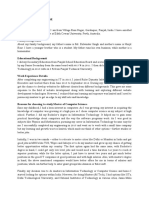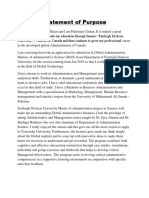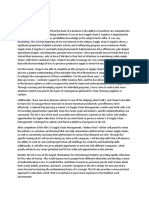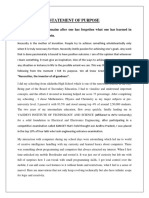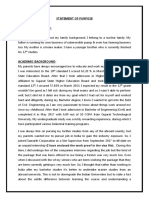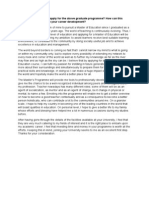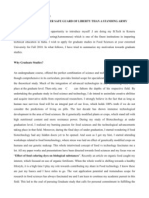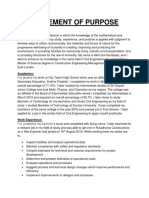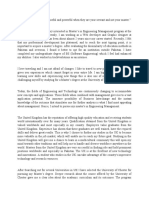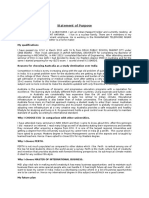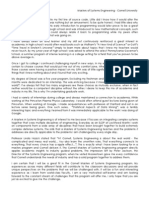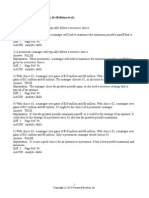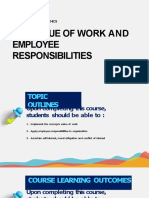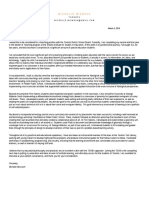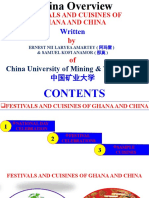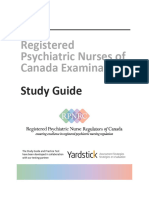0% found this document useful (0 votes)
995 views1 pagePersonal Statement Example Urban Planning 2
The document is a personal statement for an urban planning program. It summarizes the author's motivation to pursue a career in urban planning. The author grew up working class and was bothered by the sight of abandoned houses near their home, seeing it as wasted potential. The author believes their background experiencing the consequences of urban planning decisions first hand will provide an invaluable perspective in the field. The author's studies in urban planning fascinated them by the many interacting elements that shape urban environments and impact people's lives. Their goal is to work with impoverished urban communities by drawing on their experiences to improve infrastructure and quality of life in a way that takes cues from the affected people.
Uploaded by
Disha jainCopyright
© © All Rights Reserved
We take content rights seriously. If you suspect this is your content, claim it here.
Available Formats
Download as PDF, TXT or read online on Scribd
0% found this document useful (0 votes)
995 views1 pagePersonal Statement Example Urban Planning 2
The document is a personal statement for an urban planning program. It summarizes the author's motivation to pursue a career in urban planning. The author grew up working class and was bothered by the sight of abandoned houses near their home, seeing it as wasted potential. The author believes their background experiencing the consequences of urban planning decisions first hand will provide an invaluable perspective in the field. The author's studies in urban planning fascinated them by the many interacting elements that shape urban environments and impact people's lives. Their goal is to work with impoverished urban communities by drawing on their experiences to improve infrastructure and quality of life in a way that takes cues from the affected people.
Uploaded by
Disha jainCopyright
© © All Rights Reserved
We take content rights seriously. If you suspect this is your content, claim it here.
Available Formats
Download as PDF, TXT or read online on Scribd
/ 1











